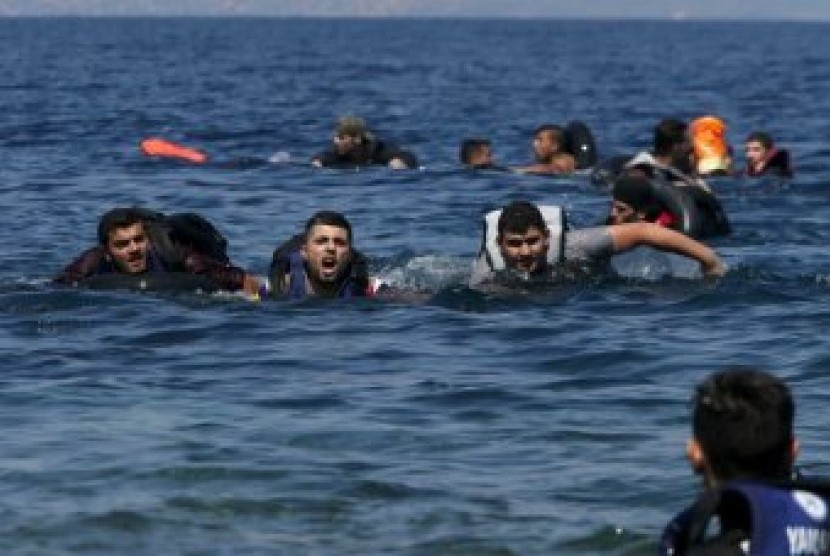REPUBLIKA.CO.ID, BEIRUT -- Instead of parables about princesses and genies, a new short play called "1,001 Titanics" has the legendary Scheherazade recounting tales of refugees making perilous sea journeys to reach safety in Europe.
If the story-telling Persian queen of "1,001 Nights" fame were alive today, "maybe she would have found herself in the first boat to Europe", said Palestinian-British director Mahmud al-Hurani.
The mostly-silent play, full of mime and puppets, opened in Beirut's Metro al-Madina theatre before moving to Palestinian and Syrian refugee camps around Lebanon.
With a population of four million in normal times, including hundreds of thousands of Palestinians, Lebanon is now also hosting 1.1 million refugees from the conflict in neighbouring Syria.
Worsening conditions for Syrian refugees in countries bordering their war-torn homeland have pushed thousands to seek a better future in Europe via dangerous and illegal routes.
"These issues forced us to think about this panic that is pushing people to get into a small boat, rocked by waves, to go on a journey plagued with danger and people smugglers," said Hurani.
The half-hour play starts with Scheherazade telling the king, Shahriyar, the tale of a skinny boy named Ahmed who lives a simple life in a quaint village in an unnamed Arab country.
But then war breaks out. The rockets raining down on his once-peaceful village force Ahmed to confront the dangers of the open seas.
The performance ends with Ahmed clutching his heart as his boat made of thin paper floats on behind him, leaving the audience to wonder whether or not he survived.
"What the cast and I wanted to do is show the reasons why someone might leave their country, but also show that people are taking a route that might also get them killed," said Carmen Omar, a 21-year old Palestinian-Syrian refugee acting in the play.
'Boats made of paper'
Omar, from the devastated Palestinian camp of Yarmuk on the outskirts of Damascus, told AFP she herself had been spared making such a decision because she had been lucky enough to have been accepted by a French resettlement programme.
The performance showcases the internal conflict of every refugee, torn between staying on in a country ripped apart by war or "uprooting himself to reach a country that does not look like him", Hurani told AFP.
"We didn't know what to say. Should we tell people to flee war and take to the sea? Or stay and face the possibility of death in your own country?"
However painful the dilemma, "1,001 Titanics" also leaves room for hope and humour.
In one scene, Ahmed tries to roll his suitcase towards one of the flimsy paper boats floating across the blue-lit stage.
But every time he comes near it, the suitcase rolls away, as if refusing to take part in the risky journey.
"It doesn't want to leave the country that it has gotten used to -- or maybe it heard on the news last night what happened to other suitcases that tried to flee," the 45-year old director jested.
Hurani said the play's title, inspired by both the world's most famous shipwreck and a literary masterpiece, also aims to send a message to Europe to rethink its perception of the Middle East.
"The East is not just magic and history and exciting stories like in '1,001 Nights,'" the playwright said.
Instead, the region has been riven by conflict "forcing people to get into boats practically made of paper... Some of them are women my mother's age, who are swallowed by the sea."
Hurani said the play's humanitarian message cuts across borders.
"It can be applied to those fleeing (Syria's) Homs, Idlib, and other places, and it can be applied to those fleeing Iraq, Afghanistan or any other place," he said.
"A refugee is a refugee, no matter where he comes from."


